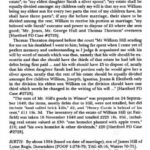
Sarah Jourdaine
Date of Birth
March 4, 1598
Place of Birth
City of Exeter, Devon, England
Towns / Cities Moved Into
Boston, Suffolk County, Massachusetts, USA
Known Occupation
-
Religion
-
Spouse
Death Information
Year of death
1671
Place of death
Some City, Country Boston, Suffolk County, Massachusetts, USA
Cause of death
-
Obituary

Parents

Ignatius Jourdain

Elizabeth Baskerville
Marital Status


Married William Hill
October 28, 1619
Exeter, Devon, England.
Siblings













Children






Narrative / Story
In the quaint city of Exeter, Devon, England, on the 4th of March, 1598, the story of Sarah Jourdaine began. Born to Ignatius Jourdaine and Elizabeth Baskerville, Sarah’s early years were nestled in the heart of a bustling family, surrounded by numerous siblings including Mary, Joseph, Hester, John, and others. Her childhood unfolded against the backdrop of a rapidly changing England, marked by events like the establishment of the Honourable East India Company in 1600, a symbol of Britain’s growing global influence.
Sarah’s life, typical of the era, was rooted in domesticity, preparing her for the eventual roles of wife and mother. This preparation came to fruition when she married William Hill on October 28, 1619, in her native Exeter. This union marked the beginning of her journey into family life, bringing forth children Sarah, William, Joseph, Ignatius, James, and Elizabeth. The family’s decision to move to Boston, Suffolk County, Massachusetts, USA, was a significant milestone, reflecting the adventurous spirit and resilience required to start anew in a foreign land.
Life in Boston for Sarah and her family would have been a tapestry of challenges and new experiences. As English immigrants, they navigated the complexities of a new society, possibly facing discrimination and the constant need to adapt to unfamiliar social norms. Sarah’s role, primarily within the confines of her home, involved managing household duties, raising her children, and maintaining a semblance of the cultural heritage they brought from England.
The historical canvas of Sarah’s life was rich and tumultuous, painted with events like the Pilgrims’ voyage on the Mayflower in 1620 and the English Civil War from 1642 to 1651. These events, no doubt, had a profound impact on the social and political environment that surrounded her and her family.
In her later years, following William’s death, Sarah’s life saw her remarrying twice – to Nathaniel Sowther and then to Edmund Greenleaf. Her longevity was remarkable for her time, living until 1671 in Boston, Massachusetts, and finally resting in Fairfield, Connecticut, at the age of 73.
Sarah Jourdaine’s life story, from the late 16th to the mid-17th century, is a vivid narrative of a woman’s journey from England to the New World. It’s a tale that mirrors the experiences of many early immigrants – a life characterized by adaptation, resilience, and the enduring strength of the human spirit. Her legacy, preserved through historical records and the memories of her descendants, continues to offer a window into the life of a woman who lived through some of the most significant events of her time.
